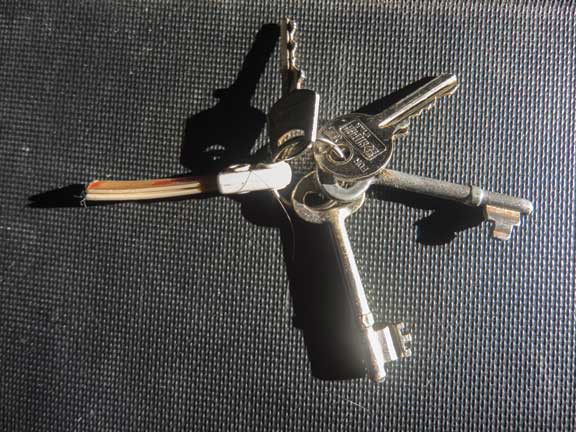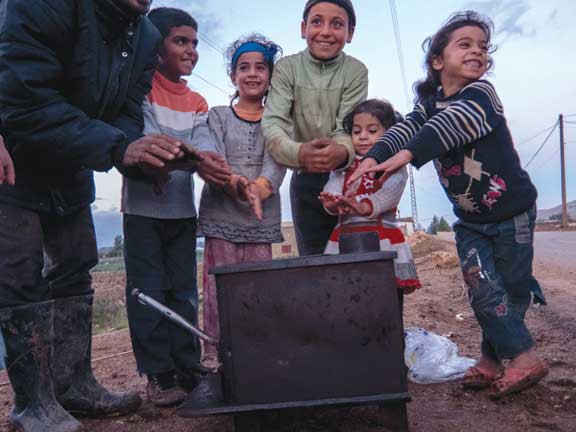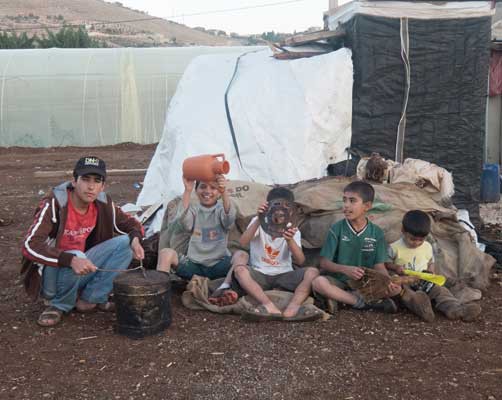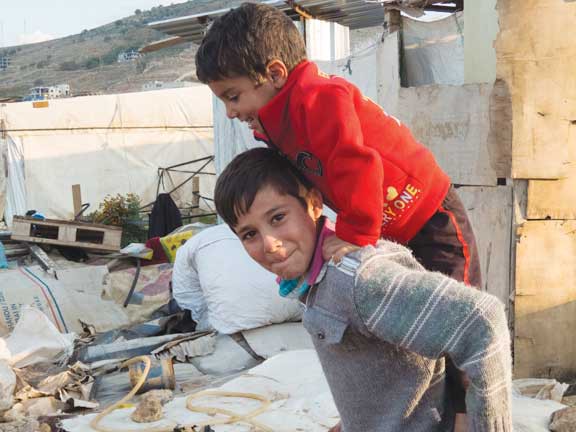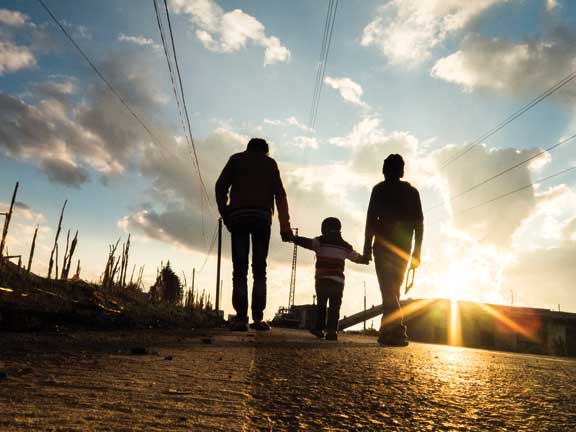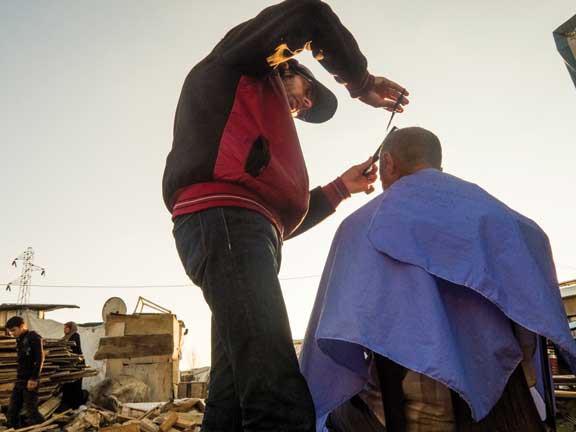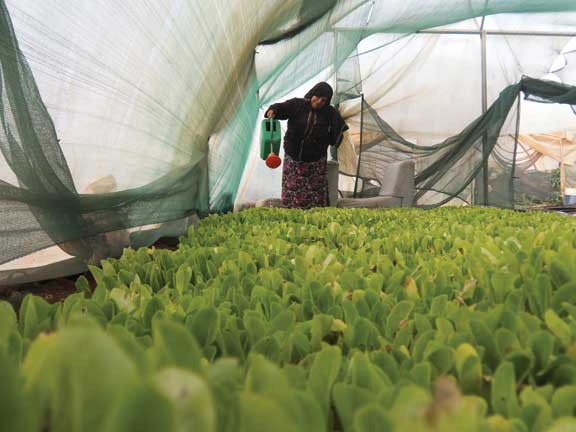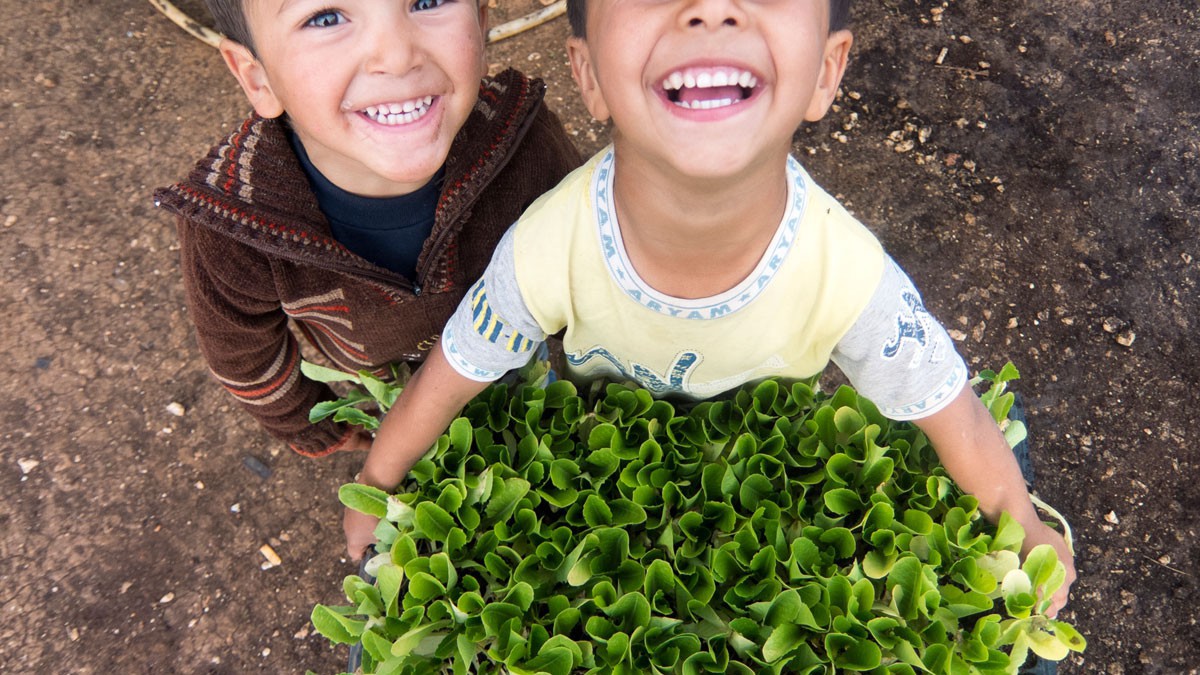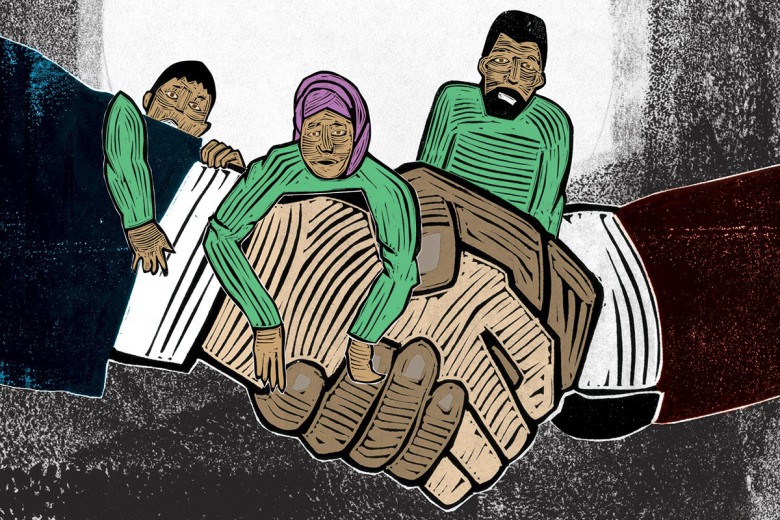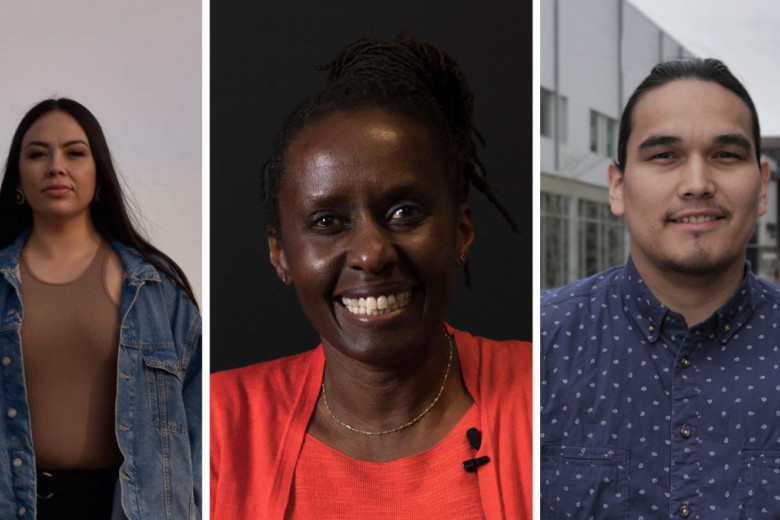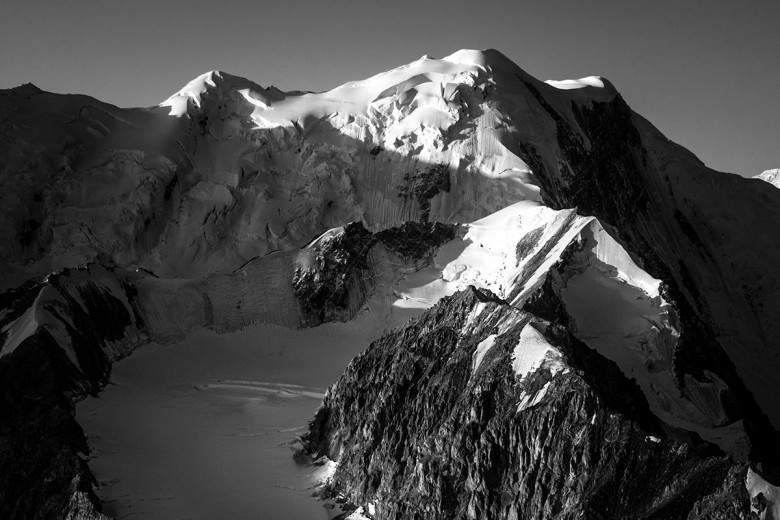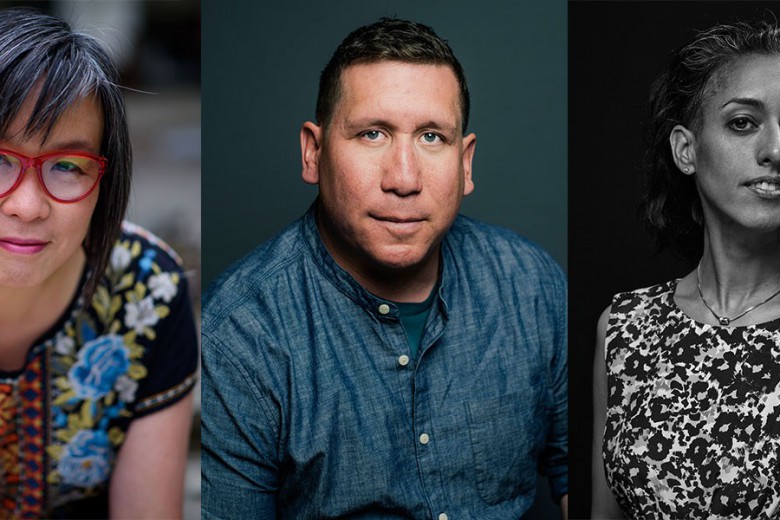Hani al Moulia grew up in Homs, Syria. When the civil war in Syria escalated, killing several of his relatives, he fled to Lebanon, where he lived in a refugee camp in Bekaa for three years. “After one year of doing nothing, and feeling far away from any chance to complete my university education,” al Moulia explains, “I tried to find myself in other things that I could do to keep my heart and mind in good shape.”
Then al Moulia met Brendan Bannon, a photojournalist who had arrived at the refugee camp to teach a two-week photography program. Al Moulia picked up a $100 Fuji camera and began photographing life in the refugee camp, pouring his energy into “a project about the kids who have been born in the camp, because I believe that [the camp] will end some day. I want them to see this picture and see the difference when they realize it’s not their normal life.”
Al Moulia’s photos reflect his deliberate approach to capturing moments. His vision is impaired by nystagmus, an involuntary movement of the eyes that prevents them from focusing and seeing certain colours. While he cannot see through the camera’s viewfinder, his photography method centres on what he describes as “taking a photo with my mind. I care about the angles, the subject, and details over the settings, and with practice all of those things together become like a feeling.”
Al Moulia and his family left the refugee camp in June 2015. Today, al Moulia lives in Regina, Saskatchewan, where he is studying English and making plans to study computer engineering. “One of my goals now is to help refugees around the world by telling their stories and how they are living, and also share all that I’ve learned with them.”
All captions written by al Moulia.
